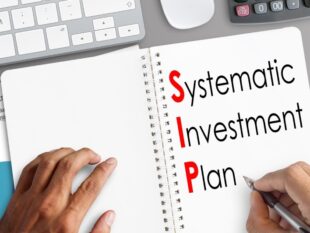Selling A European Business Step-By-Step Plan
by Abdul Aziz Mondal Business Development 15 October 2022

Every year, thousands of businesses change hands.
A successful business acquisition is a challenging process involving many factors. Do you have a business for sale in Europe?
Then this roadmap will give you a good overview of the process. This is followed by “5 useful European business selling tips”.
Selling your European Business Roadmap
Selling your business requires careful preparation, execution, and completion. That whole process can be roughly divided into five phases.
Phase 1: Orientation
Start at the beginning: why do you want to sell your business? What do you want to achieve by doing so and what concrete objectives follow from that? And: to what extent do you want to stay involved after the business acquisition?

The reasons vary, such as retirement, health problems, insufficient business perspective, or simply the desire for a different challenge. The orientation phase concludes with the drafting of a clear transfer plan.
Phase 2: Preparation
In the preparation phase, the business is prepared for sale. This includes several activities, such as determining the sales price and getting the business ready for sale organisationally and financially.

i. Setting the price
To successfully complete the sale of your business, the sales price will have to be in line with the market. A valuation carried out by an acquisition advisor provides insight. It is important to realize that many factors affect the final yield ‘under the line’.
First of all, there is a difference between the value of the business (‘Enterprise Value’) and the purchase price remaining for the entrepreneur.
Very simply put, the difference is net funding, but things like the normalization of working capital and other balance sheet items can also play an important role here.
Furthermore, things like tax payments, interest rates, the economic climate and the potential growth of the business, and any alternatives for a potential buyer affect the value when selling the business.
Experience shows that an entrepreneur values his or her business more than a potential buyer. This is understandable as there are seller sentiment and market forces during the process. An acquisition specialist knows what a fair market value is and which elements contribute to a higher value. For example, a company that is organisationally and financially in order represents a higher value to the buyer.
ii. Prepare business acquisition organisationally
Are all legal matters in order? Are permits, exemptions, and certifications up to date? Are the IT systems working properly and are the other assets in good condition?
A buyer wants to have insight into these questions in order to get a good idea of the state – and thus the value – of the company. It is therefore important to tackle all possible organizational stumbling blocks in advance.
Sometimes these are practical matters, and sometimes legal restructuring is required (e.g. separation of real estate from sales). A good takeover specialist will bring all such issues to your attention.
iii. Prepare company takeover financially
Before the process of selling a business can be started, it is important to have the financial position in the order. An acquisition specialist will help to thoroughly review your business. The analysis is integral and company-wide. Some of the focal points include:
| * Financial risks. For example, are there any debtors in arrears? If so, can arrangements be made with them? * Tax risks. Have all returns been filed correctly? Are the accounts in order and audited by a good tax specialist? * Potential savings. Which costs are really necessary for the current operation? Where are possible savings to be made? * Optimisation of the balance sheet. Are there opportunities for better stock control and debtor monitoring, which would reduce working capital and improve the company’s profitability? After all, the financing requirement would be reduced, which would increase the value of the shares. |
It goes without saying that the sales process is positively stimulated by reducing risks, making savings, and making optimizations. There is another advantage because potential hidden flaws will come to light before the potential buyer is confronted with them during the due diligence. Indeed, discovering such defects is detrimental to confidence in the selling party and may even lead to renegotiating an already agreed price.
Phase 3: Looking for a buyer
Once all preparations have been made, it is time to start looking for a buyer. Together with the acquisition specialist, a list of potential buyers is drawn up. This list should not be too short (because more bidders will push up the price), but also not too long (because then the news will quickly leak out to the market, which is bad for the sale).
Potential buyers must fit the entrepreneur’s needs and requirements. The angle of selling a business is also important: will the whole business be sold or is it just a part? In the latter case, the buyer will also become a partner and then personal characteristics also play a role.

i. Information memorandum
Like selling products, selling a business also requires marketing. This is why an information memorandum, or sales brochure, is drawn up. There are no set rules as to content and form, but it is recommended to cover at least the following topics:
– legal profile;
– business activities;
– sales market(s);
– marketing strategy;
– financials;
– future prospects;
ii. Business acquisition confidentiality
Carefulness trumps selling a business, which is why confidentiality is important in the first instance. It is recommended to have your company marketed with an anonymous profile by an acquisition specialist. If potential buyers become interested in this teaser, they should very much sign a confidentiality agreement before the company name is revealed. Secrecy between all stakeholders is important for both continuity and pricing.
Phase 4: Contract negotiation
Has a potential candidate come forward? Then it is time to open negotiations. It is good to realize that buyers and sellers judge the company in different ways. A potential buyer looks first at the value of the business when sold, while the seller is most interested in the net proceeds. It is therefore important to adopt a common language, or the same definitions, from the outset.

i. Takeover adviser
Although an experienced takeover advisor can add value at all stages of the sales process, his/her expertise comes into its own during the contract negotiation. The takeover specialist already ensures that you, the entrepreneur, are aware of the market value of your company in advance.
Furthermore, he/she will approach suitable parties, skillfully lead the process and choose the right negotiation strategy. As a result, you will ultimately get the highest possible proceeds.
ii. Scenarios
A company takeover can take place in various ways, such as:
– Management buy-in: all or part of the company is taken over by an outsider (often a private individual or investor).
– Management buy-out: the company is transferred to one or more employees within the company.
– Strategic takeover: the company is sold to another company (competitor, strategic or financial party).
iii. Dilemmas when selling a business
What future do you see for your business after the acquisition? If you want to secure continuity, company name, and jobs, this may make your business less attractive to buyers. For example, consider a competitor who wants to acquire the company to transfer production to achieve economies of scale.
If the independent survival of your company is important, then acquisition by a family member or current manager is probably more promising. The disadvantage is that this construction is unlikely to lead to the highest selling price. In short: every condition has consequences.
Phase 5: Transfer and completion
What seems far away at the start will one day become reality. With the official transfer of the business, the takeover is a fact. The purchase price is paid, the accounts are closed and the last tax matters are settled. Even at this final stage, the takeover specialist can help dot the i’s and cross the t’s. Your sale is thus completed, time for something else.

Additionals:







































































































